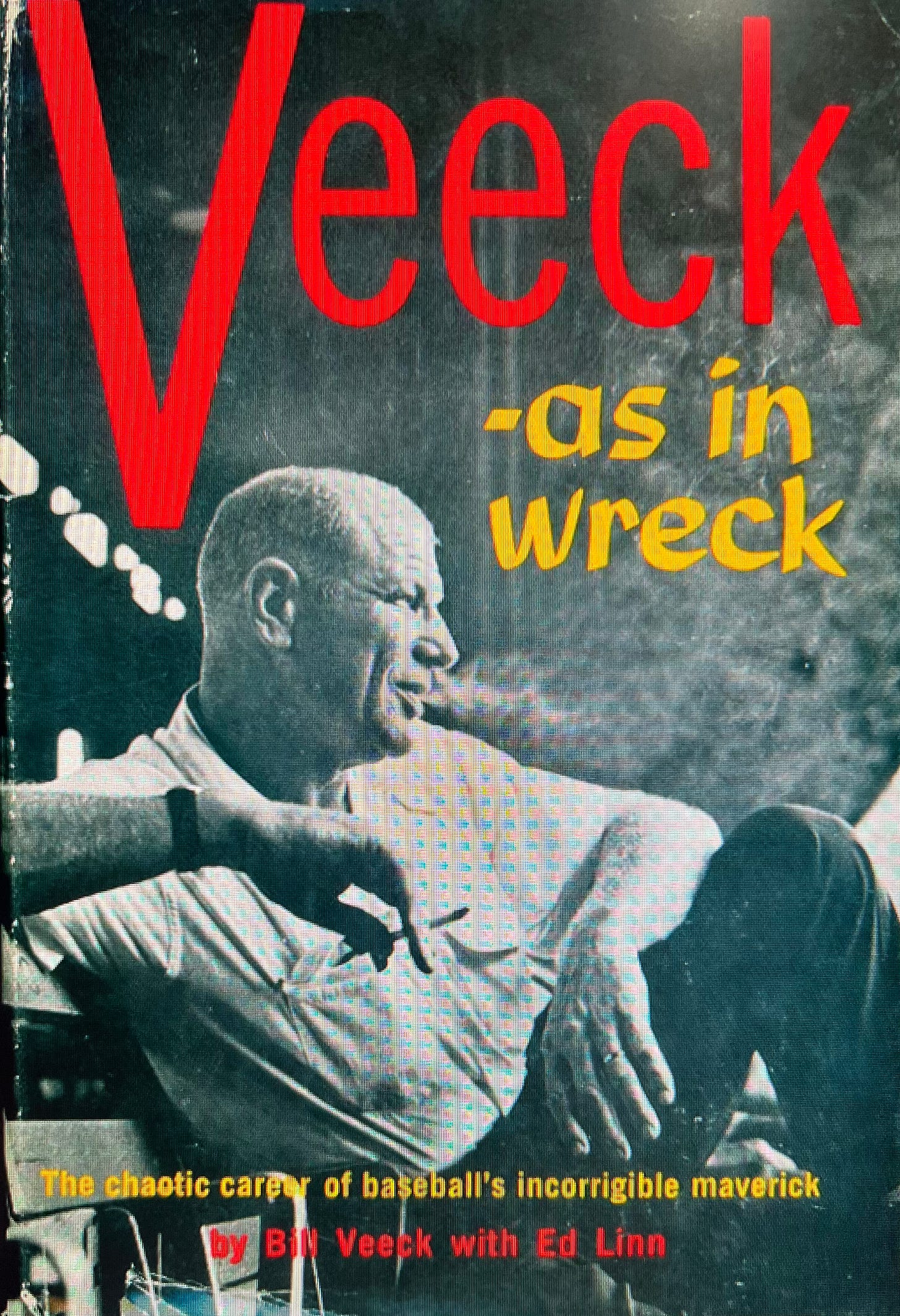The Life-Changing Gift of Bill Veeck
"If we are fortunate, we will come across people in our lives who make us feel heard, who see things in us that we did not see in ourselves, and make us feel good about ourselves. That was Veeck."
By Michael S. Lewis, M.D.
William Gladstone and Benjamin Disraeli were two famous British prime ministers of the nineteenth century. It was said that after you dined with Gladstone, you left thinking that he was one of the most intelligent and interesting people you had ever met. After you had dinner with Disraeli, you left thinking that you were a clever, fascinating person.
If we are fortunate, we will come across people in our lives who make us feel heard, who see things in us that we did not see in ourselves, and make us feel good about ourselves.
For me, one person who immediately comes to mind is Bill Veeck, the owner of the Chicago White Sox. I knew and worked with Bill from 1976 until 1981, when I was an orthopedic consultant for the team. He had previously owned the St. Louis Browns, and the Cleveland Indians, where he won a World Series title in 1948.
During my professional career, I have worked with some unforgettable personalities – Michael Jordan, Dennis Rodman, and Phil Jackson, to name but three. But no one was more multifaceted and captivating than Bill Veeck.
Bill took me under his wing, and during the Sox games, which were played at the original Comiskey Park, I spent a considerable amount of time with him. After the game, we would amble over to the “Bard’s Room,” a smoky hangout filled with White Sox memorabilia and mounted animal heads, where he would hold court. The room was little changed from when the stadium was built in 1910.
For me, Bill epitomized the true meaning of the word sophistication — being so comfortable with yourself that you can relate to people from every kind of background and always treat everyone with respect.
Bill read several books a week and was an author himself. His autobiography, Veeck as in Wreck: The Chaotic Career of Baseball’s Incorrigible Maverick, was a bestseller. He loved discussing literature, as well as baseball trades, with the sportswriters covering the team. During those late-night sessions, filled with stories and jokes, the names Ernest Hemingway and William Faulkner were mentioned almost as often as current players on the team, Richie Zisk, Oscar Gamble, and Wilbur Wood.
While in the military in World War II, Bill had been wounded, and after multiple surgeries, his right leg had to be amputated above the knee. He had also worked as a medic, and because of these experiences, he was completely comfortable discussing medicine with the physicians associated with the team. Best of all, Bill loved sitting in the bleachers and connecting with the “average fan.”

What a character he was! The first time I saw him use a hole he had carved in his wooden leg as an ashtray, my eyes almost popped out of my head. In my experience, being comfortable with oneself also is associated with having a sense of humor, the ability to laugh at yourself.
Bill retained his sense of playfulness even during challenging times. He recounted a story from the period when he owned the St. Louis Browns in the early 1950s, when they had the lowest attendance in the league. It was not unusual for Veeck himself to pick up the phone when someone called the box office, so when a fan called asking for the start time for the Saturday game, Bill inquired, “How many in your party?” “Six,” was the reply. Bill’s response: “What time would be convenient for you?”
Veeck’s fun-loving side never abandoned him. Among his classic pronouncements: “There are only two seasons — ”winter and baseball” and “Baseball is almost the only orderly thing in a very unorderly world. If you get three strikes, even the best lawyer in the world can’t get you off.”
Despite having a wooden leg, Veeck loved to dance with abandon. He fully subscribed to the philosophy, “Sing like no one is listening, dance like nobody’s watching and live like it’s heaven on earth.”
Veeck was a man positively brimming with creative energy, always thinking of ways to bring more fun and excitement to the ballpark. He once showed me hundreds of index cards on which he’d written ideas. He’s the guy who had invented such traditions as the exploding scoreboard, players’ curtain calls after hitting a home run, and having Harry Caray singing “Take Me Out to the Ball Game” during the seventh inning stretch. In the stadium, he created an atmosphere of a never-ending festival, highlighted by Mexican night, Greek night, and German Oktoberfest.
As Dale Carnegie said, “You can make more friends in two months by becoming really interested in other people than you can in two years by trying to get other people interested in you.”
What a gift — to spend time with someone who was able to bring the joy out of everyone around him. I will always treasure my relationship with Bill Veeck.
MICHAEL S. LEWIS, M.D. is a former Orthopedic Consultant to the Chicago White Sox and the Chicago Bulls, and the author of seven books.
From decoding politics to the cutting edge of wellness to the human angle on sports to parenting and personal relationships — plus our unsparing take on what’s happening in the Jewish world — the canvas at JEWDICIOUS is limitless. Our 18 scribes share one overarching goal: To present you with new ideas and slices of life that will hit your head or touch your heart!






